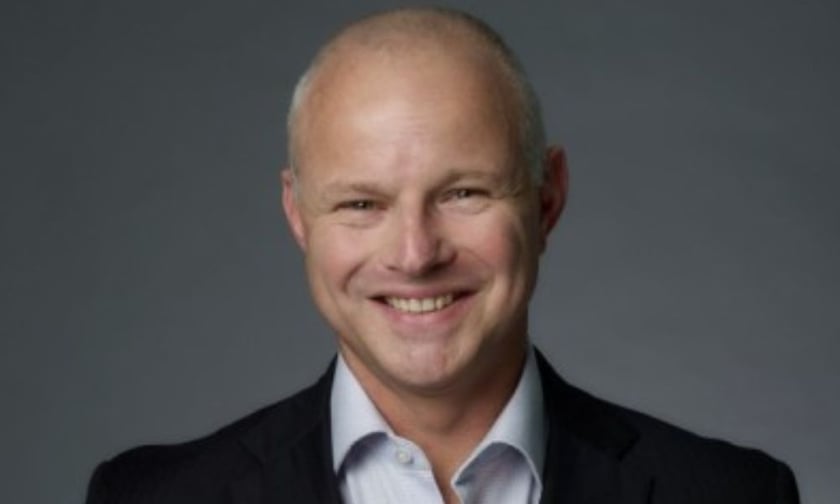

On Friday afternoon, the insurance industry’s contribution to the government’s 2022 flood inquiry took a constructive turn.
Allianz Australia’s Richard Feledy (pictured above), strongly reiterated his firm’s support for a government insurance pool to cover floods.
“I think we’ve seen the establishment of a pooling arrangement for communities where affordability is a real issue already in the north of the country as part of the cyclone pool,” said the managing director. “Certainly, as an organization, we fully support the extension of that pool into high risk existing properties.”
The Allianz submission to the inquiry detailed this support. As early as February last year, in an interview with Insurance Business, chief corporate affairs officer, Nicholas Scofield, said his firm was in favour of a pool “for flooding everywhere in Australia.”
Feledy told the hearing that Allianz knows the location of these high flood risk properties.
“Approximately 14% of the properties today have a fairly significant exposure to riverine flood risk and circa 3% of them are imminently exposed,” said Feledy.
The MD said stakeholders need to start considering how to “quarantine” these properties.
“How we take the existing stock and send very clear signals to the further development of these areas that they will not have access to a pool moving forward,” said Feledy, “it then comes down to the funding and there’s various mechanisms and there’s all kinds of perspectives and views.”
The Allianz boss said “containing the problem to what we have today and providing a solution for the current properties needs to be the priority.”
Feledy said this would also send “a very strong signal” to stakeholders in the property development chain, including financiers and local councils, that anything developed in areas outside the pool will not have access to it.
“I think there are various ways that we can contain it, there are various mechanisms on how it’s funded,” he said. “The fairness and principles of how that’s distributed, I think, is where the debate and discussion should be.”
The inquiry chair, Dr Daniel Mulino, said this would underline the importance of not building more properties in areas at high risk of flood.
“If there was one message I could get across to the committee from our perspective: stop doing the silly things which make the problem bigger,” said Feledy.
The Allianz boss referred to the ongoing property developments on alluvial floodplains in areas at high risk of flood.
“And the second one [message]: every dollar invested in mitigation is a dollar well spent,” said Feledy. “We’ve seen great examples in Queensland, in Roma, in Emerald, two communities where you were seeing almost market failure, in terms of the appetite of insurers to insure the constituents in those areas.”
Today, he said, those communities have affordable insurance “and competition is alive and well.”
Unlike other insurer bosses who appeared before the hearing, Feledy also pushed back against pointed questions from Andrew Gee, the Independent Member for Calare.
Gee said the experience of some of his constituents during the floods shows that Allianz and other insurers have shown “a reluctance to acknowledge the pain and hurt that you have visited upon a number of your policyholders.”
Feledy disagreed.
“No I don’t think it’s lost for a minute Mr Gee,” he said.
Gee asked about the flooding devastation in Eugowra, his constituency.
“It’s taken you that long, over a year to make a public apology for the people that you hurt during that extraordinary disaster. Why?” said Gee.
“Mr Gee, in the city of Eugowra we had 40 claims,” said Feledy. “Of those 40 customers in your Eugowra, none of them had flood cover.”
He said for each one, Allianz commissioned a hydrologist report.
“We met our customers on the ground, we paid them the temporary emergency payments immediately - $5,000 - and we started to help our customers with the strip outs,” he said.
Gee also raised the issue of the expense of the hydrology reports that customers need to pay for themselves if they choose to contest the conclusions of an insurer’s hydrology report.
“You know, as well as I do, that the people in these areas do not have the means, after they’ve lost everything, homes, businesses, contents, everything, they don’t have the means to pay for these hydrology reports,” said Gee.
This time Scofield answered.
“We’re not disagreeing with what you’re saying,” said Scofield. “We’re very interested in the evidence that this committee’s heard.”
He suggested that evidence given about a Queensland legal aid scheme for the CTP environment that helps customers pay for professional accident or medical reports could be adapted to help people pay for hydrology reports.
“If all we wanted to do was work out how we didn’t need to pay a flood claim, we could just get an aerial shot of Eugowra covered in brown water and say, ‘Well! There you go! That’s all flood.”
The inquiry is reporting its findings by September 30, 2024
What do you think of the government’s flood inquiry so far? Please tell us below
